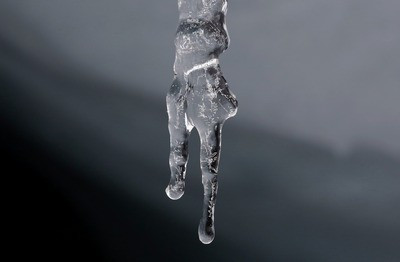Cameron's Cold Weather Crisis Looms with Weather Forecasters' Warning

David Cameron's strategy for dealing with the extra pressures a hard winter will place on the NHS and Britain's old and vulnerable may be put to its first test as early as next week.
Weather forecasters said that the first real cold spell of the winter could be about to hit Britain as the unusually mild autumn ends and winds, rain and even snow hit areas of the country.
The predictions have come after it emerged the prime minister had taken personal responsibility for monitoring the position in over-stretched accident and emergency units and as energy companies faced new calls for them to curb price rises.
According to BBC forecasts, colder weather is expected to works its way down from the north to the south of the country with temperatures expected to fall below normal for the end of November while Vantage Weather Services are reported saying: "It is safe to say winter is about to take its first bite".
The first sign that there is a real problem will come if the government's automatic cold weather payments system is triggered. The payments are made to pensioners and some welfare claimants if local temperatures fall below zero Celsius for seven consecutive days between 1 November and 31 March.
What will worry the prime minister is Labour's claims that the closure of walk-in health centres has put such a strain on A&E departments that they will buckle under the strain of a cold winter and he will find himself challenged over a "winter crisis" just when he wants to focus attention on the spate of good economic figures.
A cold spell will also test fears that the huge increases in energy bills will see old and vulnerable people forced to choose between heating and eating as Labour, and even former Tory Prime Minister Sir John Major, have been warning.
Both EDF and Co-operative Energy have limited their price rises to 3.9% and 2.5% respectively, compared to an average of more than 8% by their rivals, but that is still running ahead of inflation. Energy minister Ed Davey has accused them of treating consumers like "cash cows" and said they risk becoming as reviled as bankers.
But SSE boss has defended the industry, insisting it had provided a secure and reliable service.
"When people have gone to switch the lights on, they have come on. Fundamentally people have got reliable supplies of energy for their money. We're concerned that they should continue to do so, but in a way that is affordable," he said.
His remarks came on the same day the National Audit Office reported that, whatever else happens, consumers will be facing massively higher utility bills for 17 years to pay for the planned £310bn infrastructure upgrades.
That will see customers footing the bill with above-inflation rises on average of 18% for energy and 28% for water.
Following Ed Miliband's game changing conference speech pledging a 20 month freeze on energy bills, politicians on all sides have insisted they want to keep charges down and there are growing concerns over consumers' ability to meet these massive costs.
There is now growing pressure on the firms to open their books to full public scrutiny. In particular, MPs on the Commons energy committee want to see precisely how the companies manage their different arms - energy production, distribution and provision - amid claims the system is deliberately confusing and opaque.
There have been persistent claims that large numbers of people will simply chose not to turn on their heating in the winter and that there will be deaths as a direct result.
If that coincides with a crisis in the NHS as it struggles to cope with the consequences of the onset of winter, Cameron will find himself at the centre of Labour claims that he failed to stand up to the powerful energy companies and that his top-down NHS reforms contributed to the crisis.
© Copyright IBTimes 2025. All rights reserved.






















